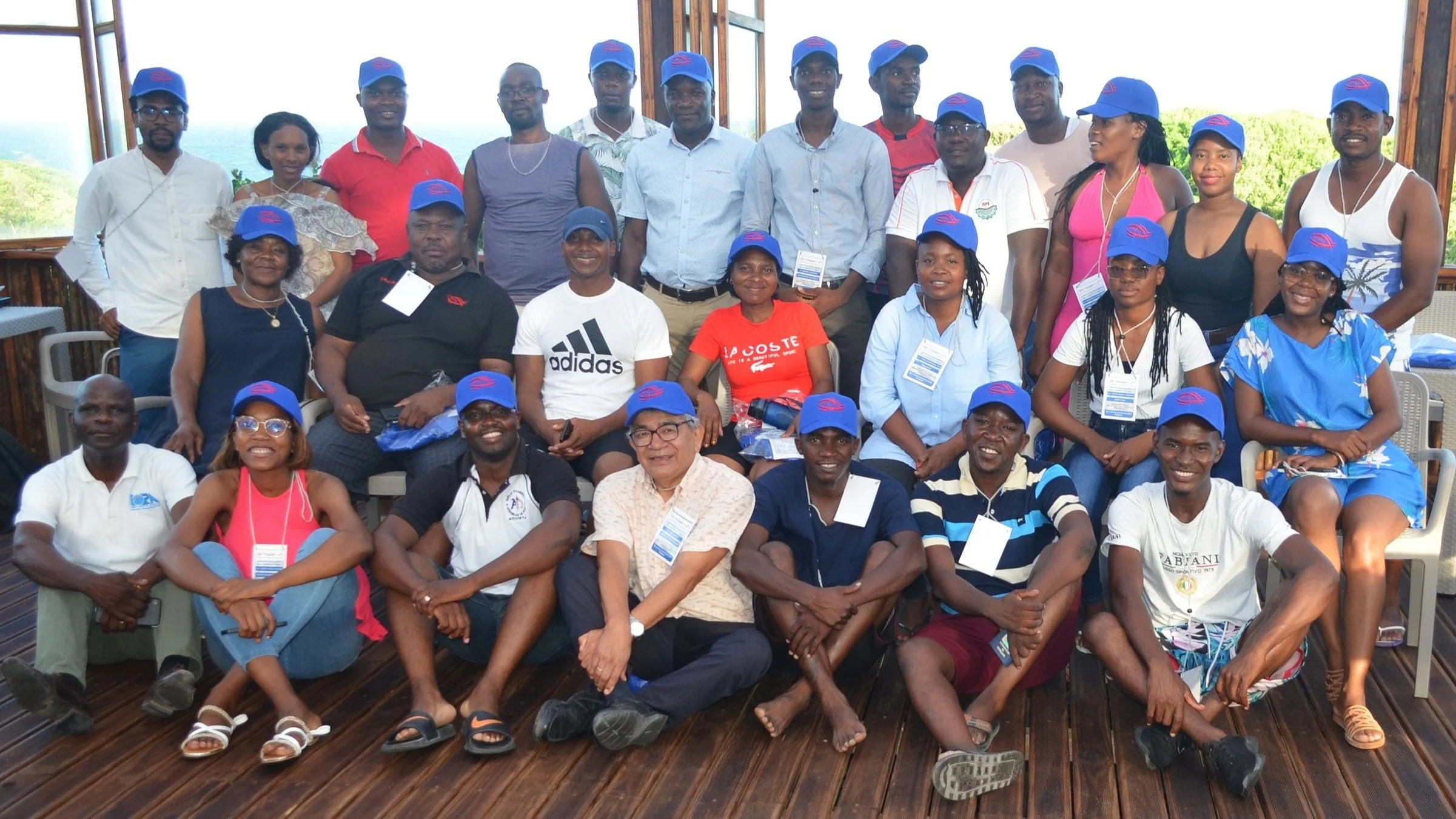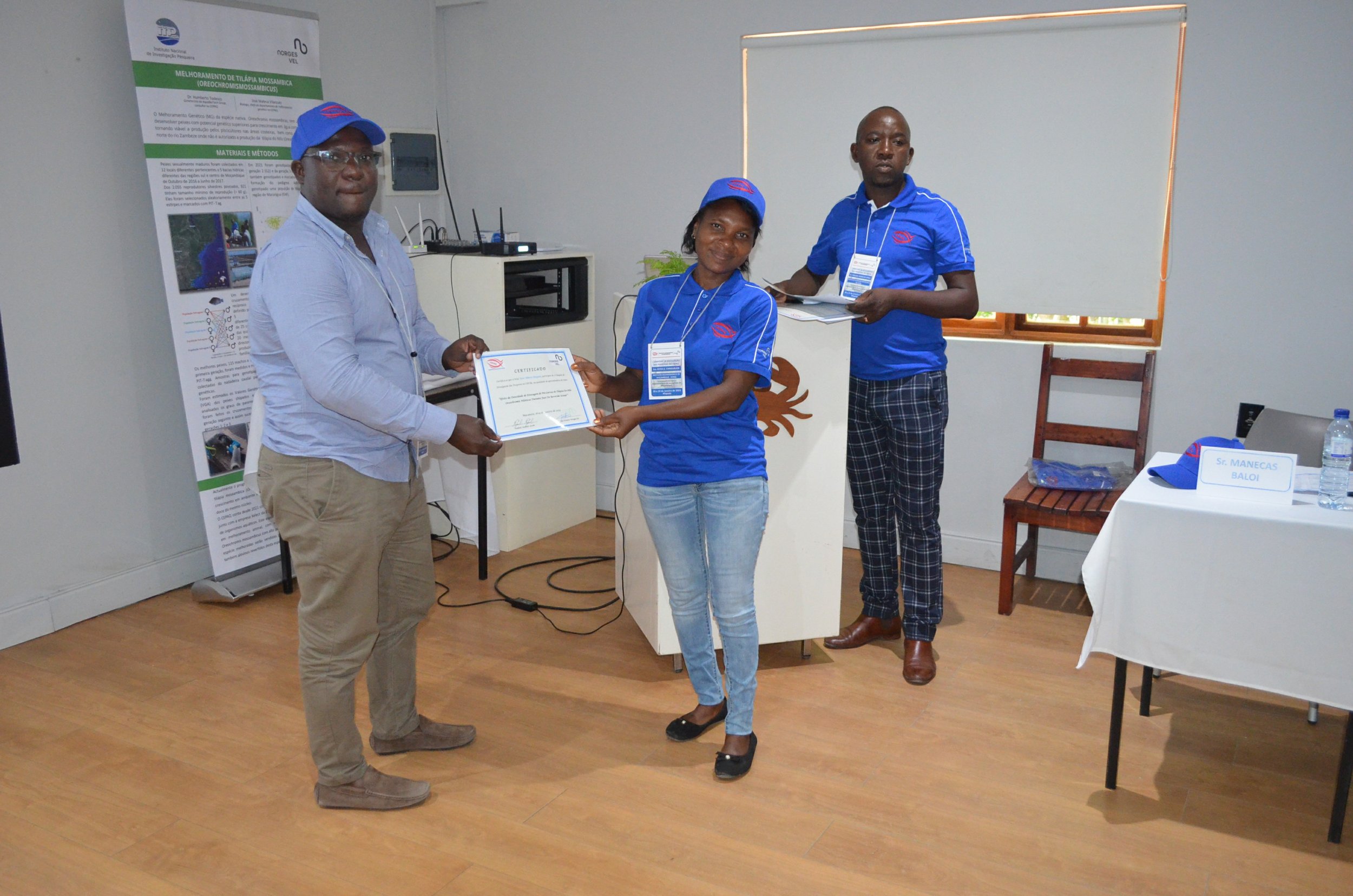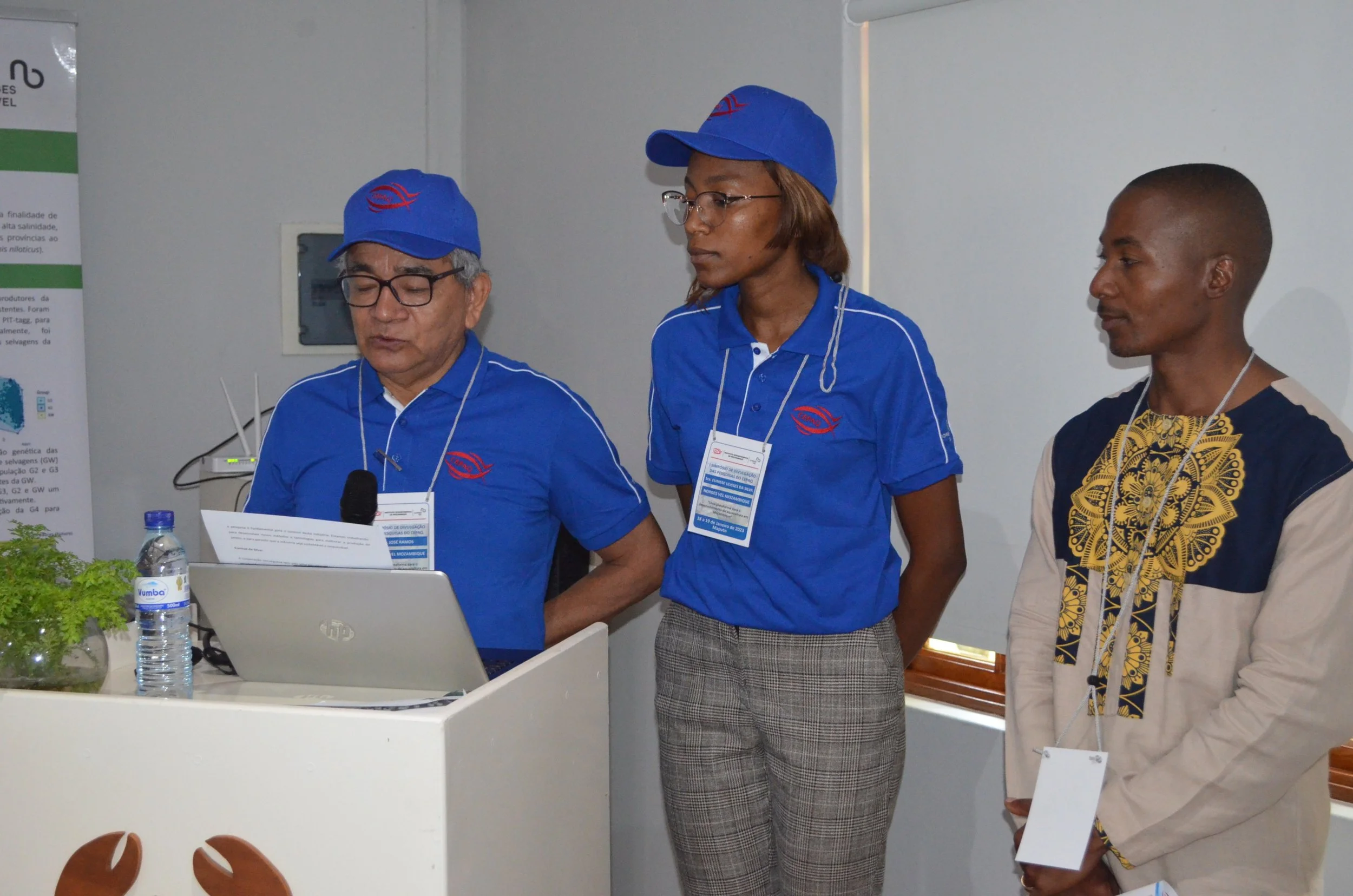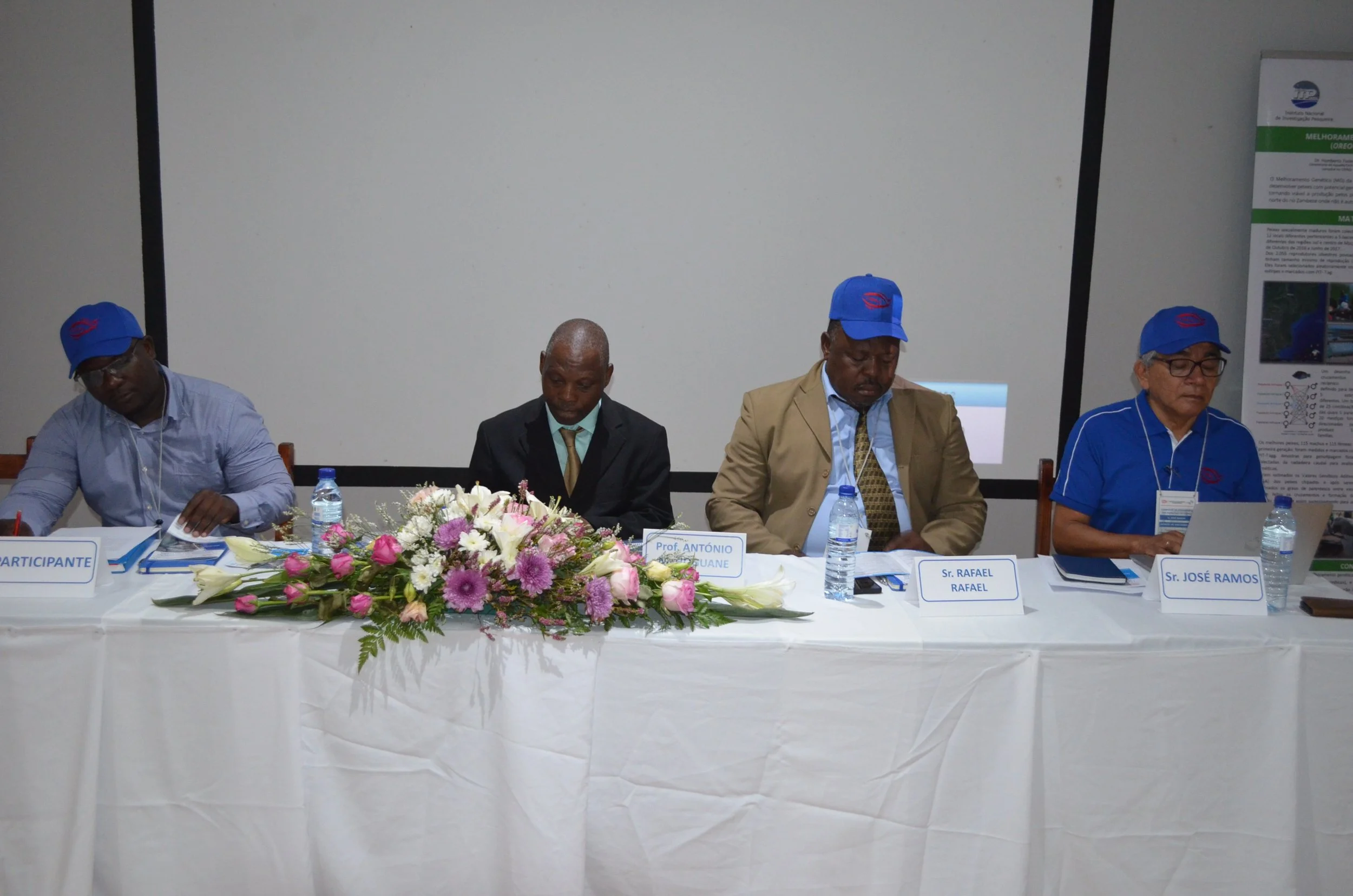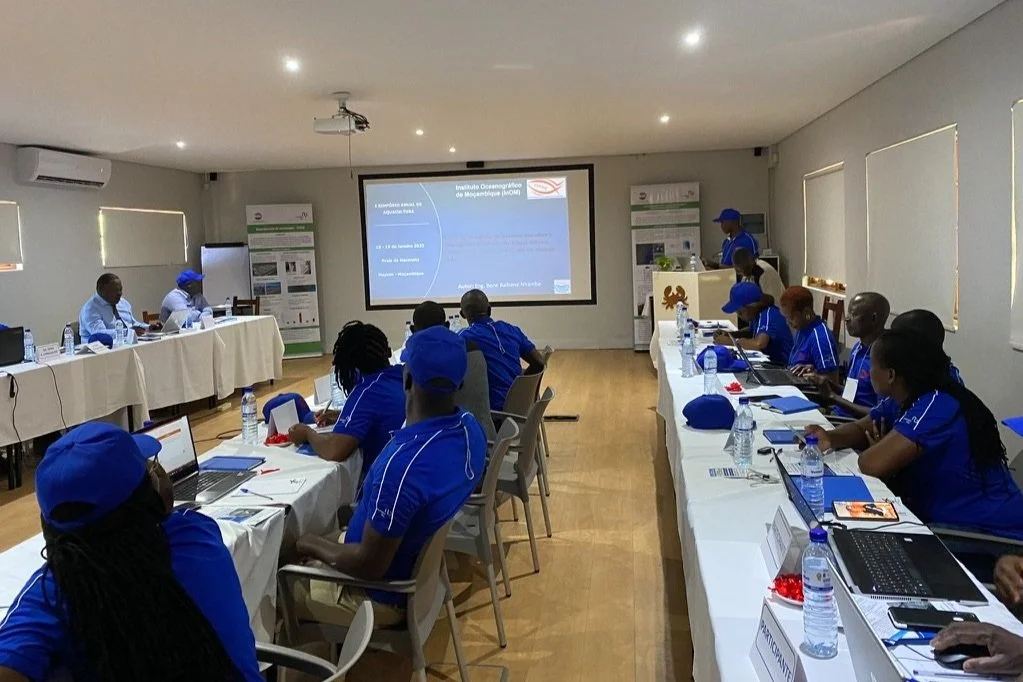Sharing new research on aquaculture
Earlier this year, we gathered professionals, researchers and students to share and discuss findings from the research at the aquaculture center CEPAQ. The research contributes to knowledge and genetic improvement of the farmed fish tilapia, an important part of the work to develop Mozambique's aquaculture sector.
By Jose Ramos, head of Norges Vel’s country office in Mozambique
Research and knowledge dissemination are part of the project "A platform for the development of aquaculture in Mozambique, (CEPAQ-Project)", which is supported by the Norwegian government and led by The Royal Norwegian Society for Development (Norges Vel).
The first symposium for dissemination of the research carried out at CEPAQ was held on 18 and 19 January 2023, at Praia de Macaneta in Mozambique's capital Maputo.
InOM
Mozambique's public institution Oceanographic Institution of Mozambique (InOM) conducts scientific research, knowledge development, technology, and innovation.
CEPAQ
The CEPAQ aquaculture center located in Chókwè in the Gaza province runs a breeding program for the genetic improvement of Tilapia (Oreochromis mossambicus) and the production of fry and hatchery fish for further sale to breeders in Mozambique. The center is a hub for facilitating investments in aquaculture from the private sector.
The event was opened by Professor Antonio Hoguane, General Director of InOM. He expressed his gratitude to the Norwegian cooperation with the Mozambican aquaculture sector and to CEPAQ´s applied research in Chokwe.
The researchers' results are used by CEPAQ
In the first round of discussion of the Symposium, the research discussed focused on the stocking density and feeding frequency, as well as the performance of tilapia mossambicus collected from the southern part of Mozambique.
Four presentations addressed these issues and suggested scientifically tested recommendations that can benefit fish farmers in achieving the expected production results. The link between the student’s thesis and the CEPAQ applied research is positive.
CEPAQ technical staff confirmed that the conclusions and recommendations related to the stocking density and feeding frequency were considered when the protocols used at CEPAQ were prepared.
Found two types of tilapias with the best growth performance
The thesis on the zootechnical performance of tilapia mossambicus has also given valuable information to CEPAQ; among the collected genetic material from Southern Mozambique, the research found out that tilapia from 2 places (Sotiva e Marrangua) were identified as having the best growth performance and CEPAQ Genetic Enhancement is actively using that information.
The second round of discussions was related to sex reversal, reproduction management, and stocking density of post-larva. The level of successful sex reversal was a subject of interest for the participants and some disagreements were revealed.
Proud receiver of certification diploma
Jose Ramos, head of Norges Vel’s country office in Mosambik, with colleague Eunisse Eulisses Da Silva and symposium attendee.
Is there a difference between Nile tilapia and Mozambique tilapia?
In the third round of the symposium, it was discussed the zootechnical performance of Nile Tilapia (Oreochromis niloticus) and Mozambican Tilapia (Oreochromis mossambicus) fingerlings, addressing aspects of feeding frequency, and water quality parameters (oxygen dissolved, temperature, pH, transparency, etc.), the inclusion of water fern macroalgae (Azolla filiculoides) in feed, among others.
Two other studies related to the growth of Nile Tilapia fed with different commercials diets (currently carried out at CEPAQ) and a master’s degree dissertation on river shrimp Cryphiops caemenatrius, by a CEPAQ/InOM staff were also presented.
A great channel for knowledge and information exchange
The Technical Superior Institute (ISPG) -where most of the students graduated- and CEPAQ’s roles are different; ISPG is an education and research Superior School, while CEPAQ is research applied institution where the students can use the facilities for experiments or research-related activities to their studies.
The disagreements showed that the symposium is a great channel for scientists to exchange information and enhance their skills and knowledge.
The participants expressed an interest in continuing with this kind of event which gives new learning opportunities and provides an arena to exchange information as well as emphasizes the need of investing in the scientific writing approach regarding investigation theses.

